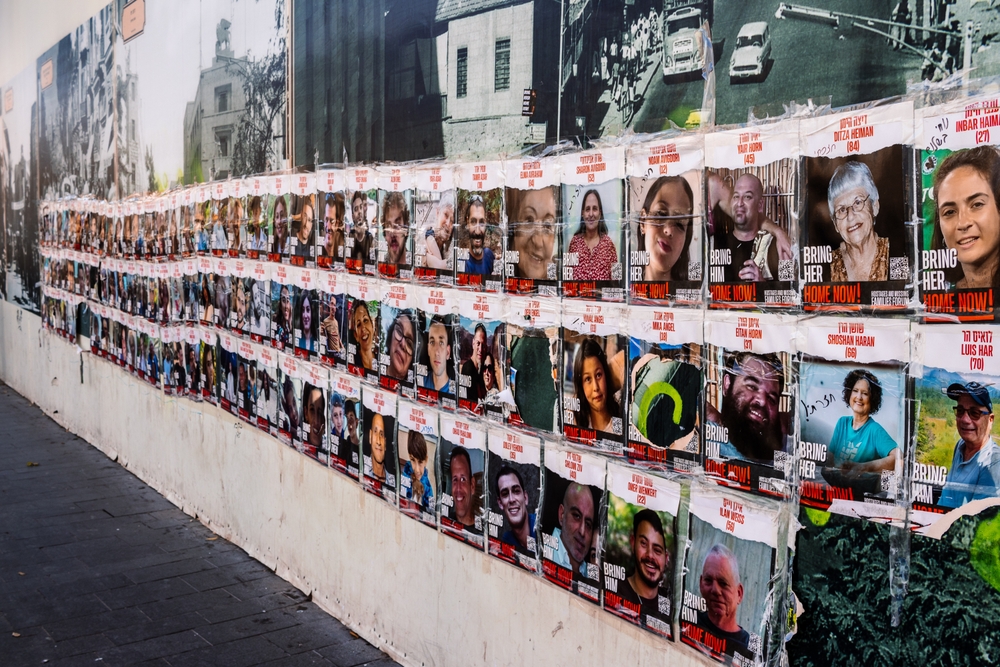A Fragile Exchange Amid Conflict
Hamas is set to return the bodies of four Israeli hostages in exchange for the release of hundreds of Palestinian prisoners. This development comes as Israel has delayed the release of approximately 600 Palestinian detainees, protesting the alleged mistreatment of hostages by Hamas. The exchange is expected to take place late Wednesday night, just before the current ceasefire phase expires.
Hamas has accused Israel of violating the ceasefire terms, with Abu Obeida, the spokesman for Hamas’s Qassam Brigades, confirming the return of the bodies through a statement on Telegram. “This delay is a serious violation of the ceasefire,” Hamas stated, emphasizing that no further negotiations on the second phase of the deal would occur until the Palestinian prisoners are freed.
Israel Protests Hostage Treatment
Israeli officials have condemned Hamas’s handling of previous hostage releases, citing concerns over the manner in which captives were presented. Prime Minister Benjamin Netanyahu’s office stated that this exchange would occur “without a ceremony,” contrasting past instances where Hamas paraded hostages before large crowds.
The Israeli prison service confirmed that preparations were being made for the release of hundreds of Palestinian prisoners. Meanwhile, the Palestinian Prisoners Club reported that the exchange was scheduled for 11 p.m. on Wednesday.
A Ceasefire at Risk
The prisoner exchange marks the final obligation of the first phase of the ceasefire, during which Hamas is to return 33 hostages—eight of whom are deceased—in exchange for nearly 2,000 Palestinian prisoners. However, the deadlock surrounding the latest exchange had threatened to collapse the ceasefire as the initial six-week phase approaches its end.
A visit by U.S. President Donald Trump’s Middle East envoy, Steve Witkoff, is expected this week. Witkoff has stated his intention to push for the second phase of negotiations, which includes the release of all remaining hostages and discussions on ending the war. However, talks have yet to progress due to ongoing tensions.
The ceasefire, brokered by the United States, Egypt, and Qatar, paused 15 months of heavy fighting that began after Hamas’s attack on southern Israel on October 7, 2023. That attack left approximately 1,200 Israelis dead and saw around 250 people taken hostage. Since then, Israel’s military response has resulted in over 48,000 Palestinian deaths, according to Gaza’s health ministry, with more than half being women and children.
The Idan Family’s Loss
One of the hostages confirmed to be among the bodies returned is Tsachi Idan, whose family was notified of his death. “He was alive when taken hostage on October 7,” the Hostages and Missing Families Forum stated. Idan was abducted from Kibbutz Nahal Oz after his eldest daughter, Maayan, was killed when militants shot through the door of the family’s safe room. Hamas later broadcast the hostage situation live on Facebook.
Mourning the Bibas Family
As the exchange takes place, Israel also held a funeral for Shiri Bibas and her two sons, 9-month-old Kfir and 4-year-old Ariel, who were killed while in Hamas captivity. Their bodies were handed over earlier this month as part of the ceasefire agreement. Israel claims forensic evidence shows the children were murdered by their captors in November 2023, while Hamas claims they were killed in an Israeli airstrike.
The Bibas family was buried in a private ceremony near Kibbutz Nir Oz. “They were laid to rest beside Shiri’s parents, who were also killed in the attack,” Israeli officials stated.
Humanitarian Crisis in Gaza
Beyond the hostages and prisoner exchanges, the humanitarian situation in Gaza remains dire. Health officials reported another infant death due to hypothermia, bringing the total to seven in the past two weeks. “A baby less than two months old died due to the severe cold wave,” said Dr. Munir al-Boursh, director general of Gaza’s Health Ministry. Nighttime temperatures have dropped below 10 degrees Celsius (50 degrees Fahrenheit), worsening conditions for displaced residents living in tents and damaged buildings.
The Road Ahead
As the ceasefire nears its expiration, both sides face critical decisions that could determine the future of the conflict. The upcoming visit by U.S. officials may help restart negotiations, but without further agreements, the fragile truce could collapse, leading to renewed violence.


